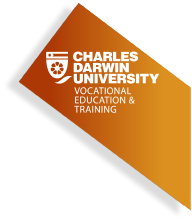Rangers gain vital skills to care for Country – Charles Darwin University

Rangers gain vital skills to care for Country
Ranger trainees from across the Top End are working to become certified through the ‘Ranger Ready’ program, combining traditional knowledge with conservation training.
Developed in coordination with local ranger groups and the Northern Land Council, the Charles Darwin University (CDU) program hosted around 150 participants, most of whom are First Nations people from remote communities.
CDU TAFE Lecturer Jacqui Paine was the lead coordinator for the two-week intensive in Kakadu National Park.
Ms Paine said the program offers an opportunity for the trainees to learn from qualified rangers, sharing their traditional knowledge as well as gaining new insights into vital land and conservation management techniques.
“This is the first time that we’ve had a group of this size join us in the Ranger Ready program,” Ms Paine said.
“We have rangers who have just started their training, and others who have worked at the park for years. It’s an opportunity to share their ideas and ways of caring for their country, and become qualified in land management.”
In the program, participants will be trained in a variety of essential skills, such as spraying weeds, small machinery operations and maintenance, four-wheel driving, operating quad bikes and chainsaws, and learning GPS coordination.
The groups trained include Wardekken Rangers, Demed rangers, Djurrubu Rangers, Parks Rangers, West Arnhem Council staff and trainees from the Crocodile Resort.
“The program is beneficial to employers, employees and us at CDU as trainers. We all learn so much every year,” she said.
“Taking this knowledge back home means the community also benefit from alternative methods or new technologies that can be incorporated into the work that they are already doing.”
The goal of the program is to encourage more First Nations rangers to obtain qualifications in Conservation and Ecosystem management and to become role models for their community.
Republished with kind permission of Charles Darwin University

